
 |
| In this newsletter: |
Society Member Area |
|---|
| Europlanet Society Webinar: Early Career Spotlight 13.00 - 14.30 CET | ||
 |
This instalment of the Europlanet Society Webinar series will focus on tools for our early career community. Featuring short talks from EPEC and from space career specialists Derek Polowyj (Eden Scott), Joanne Oliver (SpaceCareers.UK) and Ross Crosby (Innoforge), this session aims to provide you with practical tips and contacts to help you take your next career step. |
| Europlanet Society Northern Hub meeting | ||
 |
Time: 1st March 2024, 14:00 - 15:00 (GMT+2) Join the Northern Hub meeting online to have some discussions. This meeting is open to everyone. |
|
| Jose Francisco Sanz Requena - In Memoriam | ||
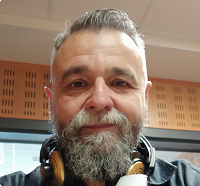 |
We are deeply saddened to inform the planetary community of the death of our beloved friend and colleague Jose Francisco Sanz Requena (57), who unexpectedly passed away on February 17th. After more than 30 years of teaching at many institutions, Fran was currently Senior Lecturer at the Applied Physics Department of the Universidad de Valladolid. In the last 15 years, his research was focused on radiative transfer in planetary atmospheres, being a long-term member of the Grupo de Ciencias Planetarias of the University of the Basque Country UPV/EHU. He was deeply involved in the analysis of the 2010 Saturn Great White Storm and particularly proud of his analysis of the clouds and hazes in the environment of the Hexagon polar wave in Saturn. In recent years, he became a member of the ERICA Research group at the Universidad de Valladolid, where his knowledge of planetary atmospheres guided a new line of research aimed for the future in-situ analysis of planetary atmospheres with Raman Spectroscopy. He had a long and fruitful trajectory in science communication, being responsible for the ‘Blues de la Ciencia’ section in the SER Historia podcast, and giving a significant amount of public outreach lectures throughout the year. He leaves a wife and son and many, many friends he cared for with his distinctive heartwarming manners. The Spanish and European planetary community will miss him. | |
Europlanet News |
|---|
| Apply to host EPSC! | ||
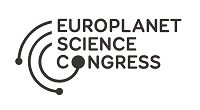 |
Join us in hosting the Europlanet Science Congress (EPSC) in 2026 or 2027! EPSC, the premier European gathering in planetary science, annually drawing 1000-1200 attendees worldwide, presents an exciting opportunity for a motivated and capable Local Organisation Committee (LOC) led by a research institute with close ties to the local planetary science community. We seek European cities with venues capable of accommodating 1200+ participants, offering hybrid access for virtual attendees. Requirements include facilities for large auditoriums, lecture halls, breakout rooms, poster displays, and exhibitions, all accessible and of high quality. Applicants can apply for either year, with EPSC 2027 ideally timed for joint hybrid activities with the AAS Division of Planetary Sciences. Interested parties can access the application pack on the Europlanet Society website, with submissions due by April 19, 2024, and host selection announced at EPSC2024. For inquiries, contact epsc@europlanet-society.org. We eagerly await your proposals! |
|
| Submit Proposals for EPSC 2024! | ||
 |
Submit your session proposals for EPSC2024! The Europlanet Science Congress (EPSC) 2024 presents a prime opportunity to contribute to Europe's largest planetary science meeting. With a longstanding tradition spanning 18 years and regularly drawing around 1,000 attendees, EPSC offers a comprehensive platform covering diverse facets of planetary sciences. We invite proposals for sessions across various program groups, including Terrestrial Planets, Outer Planet Systems, Missions, Instrumentation, Techniques, Modelling, Small Bodies, Exoplanets, Origins of Planetary Systems, Astrobiology, and Outreach, Diversity, Amateur Astronomy. Session conveners play a pivotal role in ensuring the success of our meeting, and we provide robust support through guidelines, tools, tutorials, and training. Submit your proposals by March 6, 2024, via the conference website. For inquiries, contact epsc2024@copernicus.org. |
|
| Exhibition and sponsorship at EPSC2024 | ||
 |
Would you like to support the EPSC 2024 conference and promote your organisation through the exhibition or a sponsorship package? Detailed information can be found on the ESPC 2024 website: |
|
| Final Call for Expressions of Interest – Atlas of Planetary Geological Maps | ||
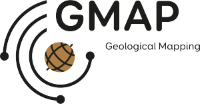 |
The Europlanet 2024 RI GMAP infrastructure has called for contributions for an Atlas of Planetary Geological Maps. The Atlas aims to provide examples of geological maps of planets and small bodies to highlight different mapping approaches and adopted methodologies in various environments and for different purposes. This collection is thought to provide guidance and inspiration to students and scientists willing to approach geological mapping in different planetary contexts. Thus, contributions focused on specific mapping tools and workflows will be warmly welcome. If you are interested in submitting a map, please contact lucia.marinangeli@unich.it as soon as possible. |
|
| Final Call for VESPA Implementation Workshop 2024 | 8th March | ||
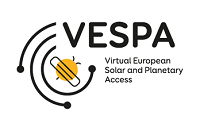 |
Don’t miss this chance to be at the forefront of cutting-edge research and make a lasting impact on Planetary Science. Submit your project proposal for the VESPA 2024 open call and be part of a community dedicated to advancing our understanding of the Solar System. Deadline has been extended to 8th March. Apply soon! |
|
Planetary Science News |
|---|
| Milky Way Globular Clusters on Cosmological Timescales - II. Interaction with the Galactic Centre | ||
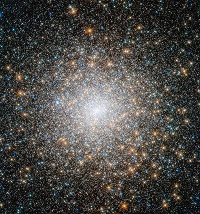 |
M Ishchenko et al, A&A, Vol 674, A70, June 2023 This study used Gaia data to estimate the dynamical evolution of the interaction of globular clusters with the Galactic centre. The lead author, Maryna Ishchenko from the Main Astronomical Observatory of the National Academy of Sciences of Ukraine, was supported through the Europlanet 2024 RI programme of visits for Ukrainian researchers. |
|
| > Read the Paper |
Events & Opportunities |
|---|
| Summer School for Sample Return | 24-28 June 2023 | France | ||
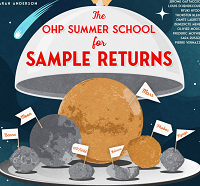 |
This summer school, run by the Institut Origines at Aix-Marseille University and the Origins theme from the Institut de Physique du Globe de Paris, will provide a unique platform to access both basic and cutting edge knowledge related to the study of the origin of terrestrial planets and life based on the analysis of extraterrestrial samples in Earth laboratories. We will have a particular focus on recent and future sample return missions. This multdisciplinary summer school will address domains including cosmochemistry, astrobiology, astrophysics, planetology, and more. We will learn through lectures and practicals from our large set of world experts as well as from more informal exchanges through a series of round tables with dedicated topics. Further information is available here. | |
| Interest in Joining HWO Working Groups | ||
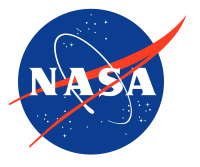 |
NASA set up an extensive list of working groups that engage in all science areas of HWO. The below form collects information by people declaring interest in joining any of these groups. Signing up in this form does not engage to actually join the group later on, but allows to receive information from the relevant email list. There is no deadline to express interest, however expressions of interest in co-chairing are being reviewed right now until all positions are filled. Please refer to the form for more information. |
|
| > Complete the Form | ||
| The Flagship of Uranus Workshop: Investigating New Paradigms for the Outer Planet| Greenbelt, MD | May 21-23, 2024 | ||
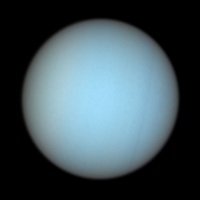 |
Registration and abstract submission are now open for "The Uranus Flagship"! We are particularly looking for abstracts on the following topics: >Short-term technologies: short-term infusions (TRL 4-6); Technologies can help improve the scientific performance of missions. In particular, we are looking for contributions on technologies that contribute to saving mass or power or can improve the return of the volume of scientific data. |
|
| >Register and Submit Abstracts | ||
| 27th International Conference on High Resolution Molecular Spectroscopy | Bologna, Italy | 2-6 September, 2024 | ||
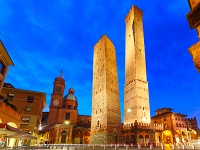 |
The 27th International Conference on High Resolution Molecular SpectroscopyHRMS2024 will take place in Bologna, Italy, from September 2 to September 6, 2024. Following the tradition of the Prague conference series, HRMS2024 welcomes researchers from around the Globe covering all aspects and varieties of experimental studies, techniques, methods, and theory in high-resolution molecular spectroscopy. |
|
| > More Information | ||
| Summer school: “Exoplanets by the Lake II: Geoastronomy” | Deadline 31st March | ||
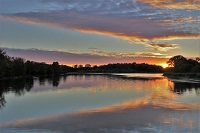 |
At this event, the aim is to explore the links between geosciences and astrophysics in understanding the geophysics and geochemistry of rocky exoplanets, how they formed and evolved and the implications for spectroscopy of their atmospheres. The first three days of this summer school features pedagogical lectures by two invited lecturers (Steve Mojzsis and Fabrice Gaillard). For the 4th and 5th day, we will transition into a scientific workshop featuring a small number (4) of invited speakers that will each give: An hour-long, pedagogical lecture introducing students/postdocs (who are mostly astronomers) to the basics of isotope systems and geodynamics. An hour-long talk on the highlights of specific research, including views on the future prospects of the exoplanet field. The spirit of the event is to foster close interaction and discussion among 20 participants (students/postdocs) and 6 invited lecturers/speakers in a marvellous hotel by a Bavarian lake. |
|
| > Website | ||
| Tenure Track in Astrochemistry | ||
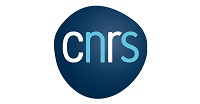 |
The National Center for Scientific Research (CNRS) is offering a tenure track position for an ASTROCHEMISTRY (M/F) (H/F) role under the acronym CATRAMOL. This position, referenced as CPJ-2024-023, is available across multiple sites, including 1 in Bordeaux, 2 in Paris, and 1 in Lille, spanning academic regions in Bordeaux, Paris, and Lille. The envisaged partner institutions for this role include Université de Bordeaux, Institut Polytechnique de Bordeaux, Sorbonne Université, Université de Lille, and Centrale Lille Institut. Published on 14 February 2024, this full-time contract spans between 3 to 6 years, contingent upon the research project and the scientist’s profile, with an annual salary ranging from 54,600 Euros to 57,800 Euros, depending on professional experience. The scientific theme primarily focuses on Chemistry and Processes, specifically within CNRS Sections 13 (Physical chemistry, theoretical and analytic), 17 (Solar system and distant universe), and 19 (Earth System: superficial envelopes). Applicants must hold a doctorate or a PhD or equivalent degree or have relevant scientific qualifications or experience. | |
| > Find Out More | ||
|
|
| Did you know? As Europlanet Society member, you can share your planetary science news via our newsletter. Contact the editorial team! |
| Not a member yet? Click here to join the Europlanet Society! |
| Contact: |
Department of Planetary Atmospheres Royal Belgian Institute for Space Aeronomy (BIRA-IASB) Avenue Circulaire 3 Brussels, BRU 1180 Belgium |
| membership@europlanet-society.org |
| Want to change how you receive these emails? You can update your preferences, unsubscribe from this list, or unsuscribe from all Europlanet Society mailing lists. |
| Europlanet AISBL (Association Internationale Sans But Lucratif - 0800.634.634) is hosted by the Department of Planetary Atmospheres of the Royal Belgian Institute for Space Aeronomy (BIRA-IASB), Avenue Circulaire 3, B-1180 Brussels, Belgium. |